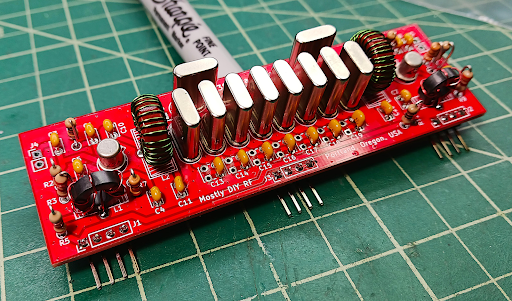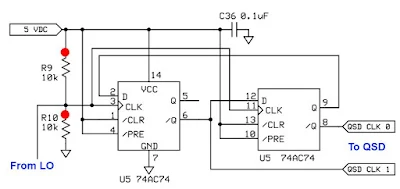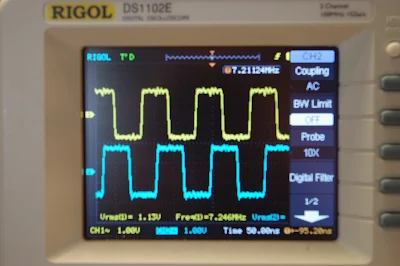Our friend Todd (Vasily) had recently been thinking about this on his excellent Popcorn Electronics blog:
https://qrp-popcorn.blogspot.com/
There are many answers to this question. Todd's post made me think about a message from Farhan VU2ESE on this same subject. See: https://www.vu2ese.com/index.php/2022/08/04/daylight-an-all-analog-radio/ My comment and a quote from Farhan appears below:
Hello Todd! I have been thinking about the same things. As you know there is a lot of magic in using gear that you have built yourself. And it is still possible to do this. But I think the builder has to make some choices: Building it yourself might -- as you say -- require you to move away from the perfection, bells and whistles of the modern ICOM 7300 style rigs while embracing the simple functioning of analog rigs. Farhan was thinking of this three years ago:
"So here we are, talking analog radios in 2022. Here is the memo : The analog never died. The world is analog all the way, until you descend into Quantum madness. The antennas are analog, Maxwell died a content, analog man. Our radios, ultimately, are analog machines and we are all analog beasts too. Amateur Radio technology has evolved into the digital domain. However, it has only made it easier for us to do analog with computers to simulate and print our circuits. So, it’s time to bid good bye to our Arduinos and Raspberry Pis and build an Analog Radio for ourselves. So let’s see what we can achieve in hindsight, a return to our native land and a rethink of our approaches. The radio is called Daylight Again, a nod to being back at the FDIM in 2022 after a gap of two years. It is named after the Crosby, Stills, Nash and Young’s song that had been humming all the time while put this radio together, emerging after 2 years of lockdown. This radio that took two days to come together, no actually two years! That’s: parts of it got built and stowed away, thoughts were struck in the shower, questions popped up during early morning cycle rides and notes and circuits were scribbled in the notebook. I must take the first of many diversion here: I hope you all maintain a notebook. Write down the date and whatever you thought or did on the bench and the result. Nothing is trivial enough to leave out. Wisdom comes to those who write notes. I started to build this on Saturday the 14th May and I checked into the local SSB net on Monday morning, the 16th May 2022. Back to the radio. What can an analog radio do that will appeal to us homebrewers?"
More to follow. 73 Bill Hi7/N2CQR



.jpg)







.jpg)





